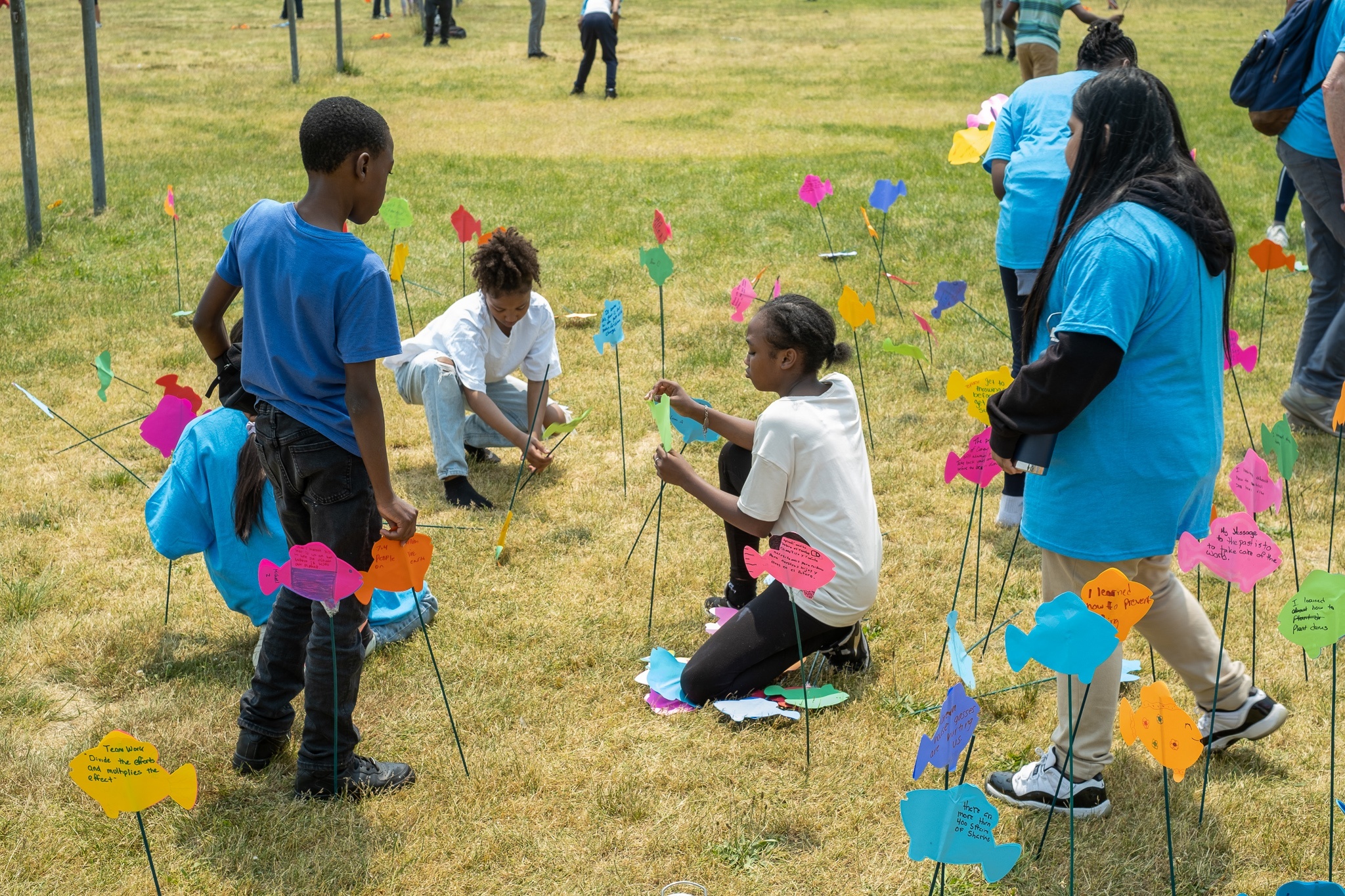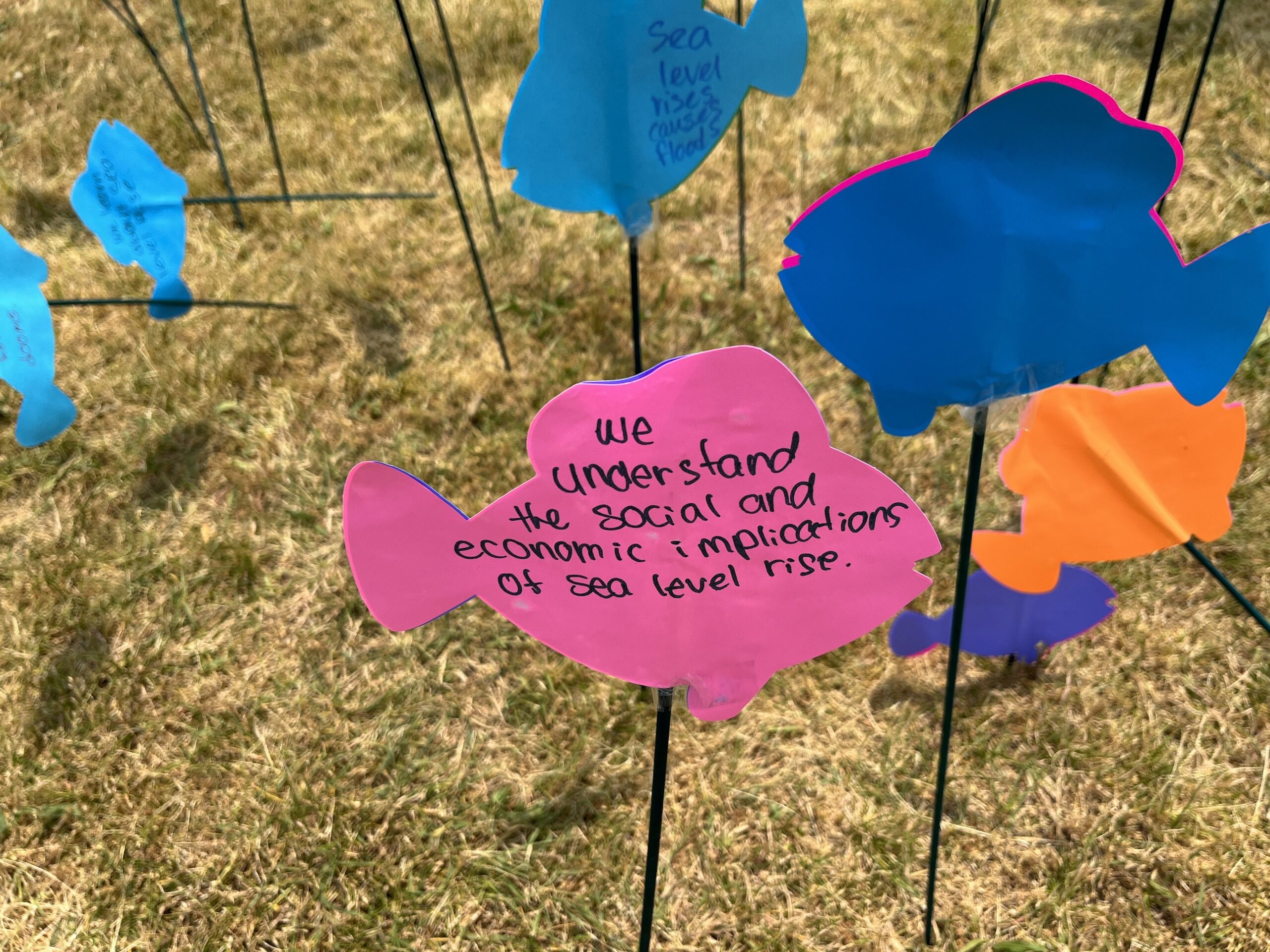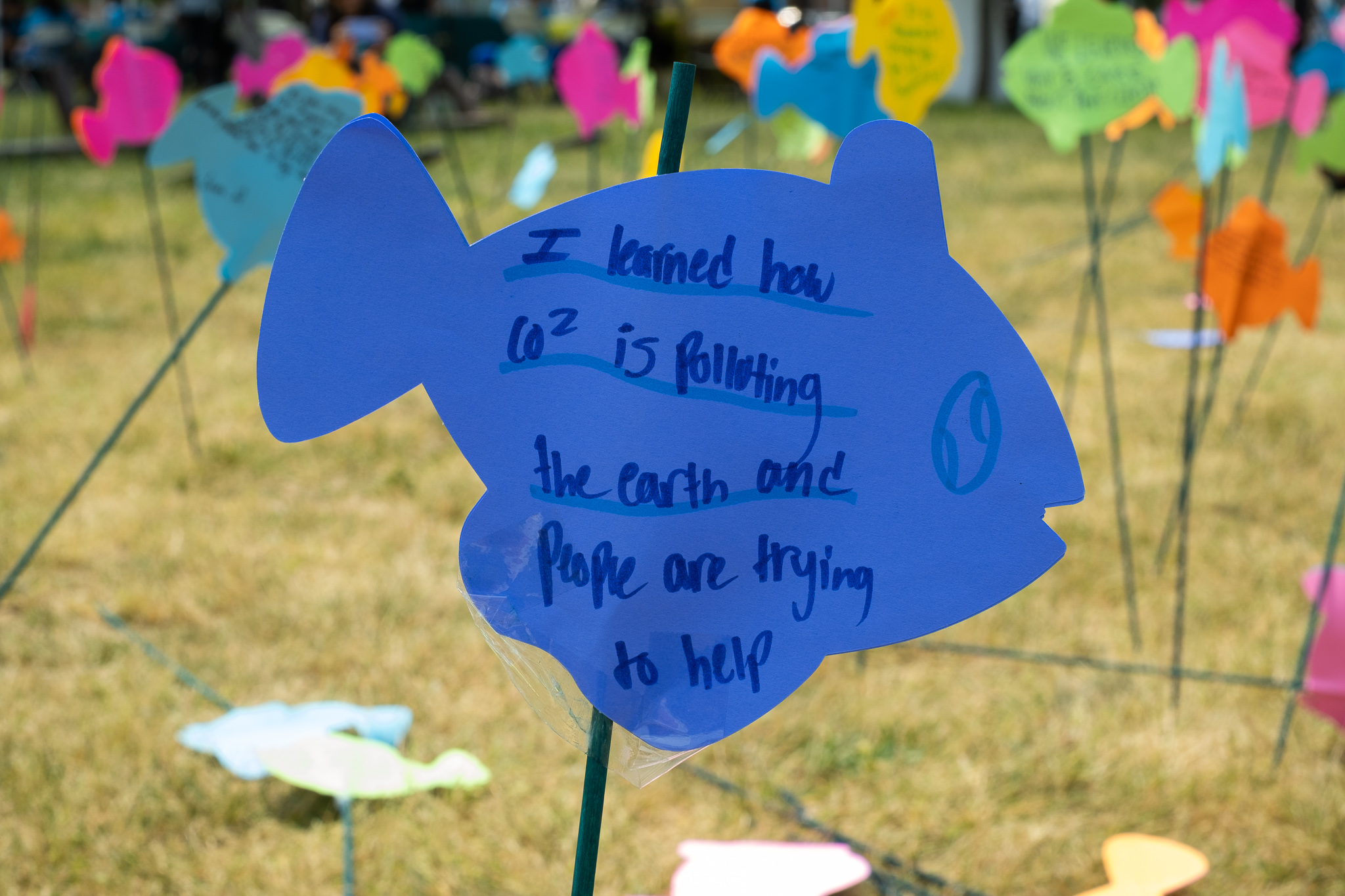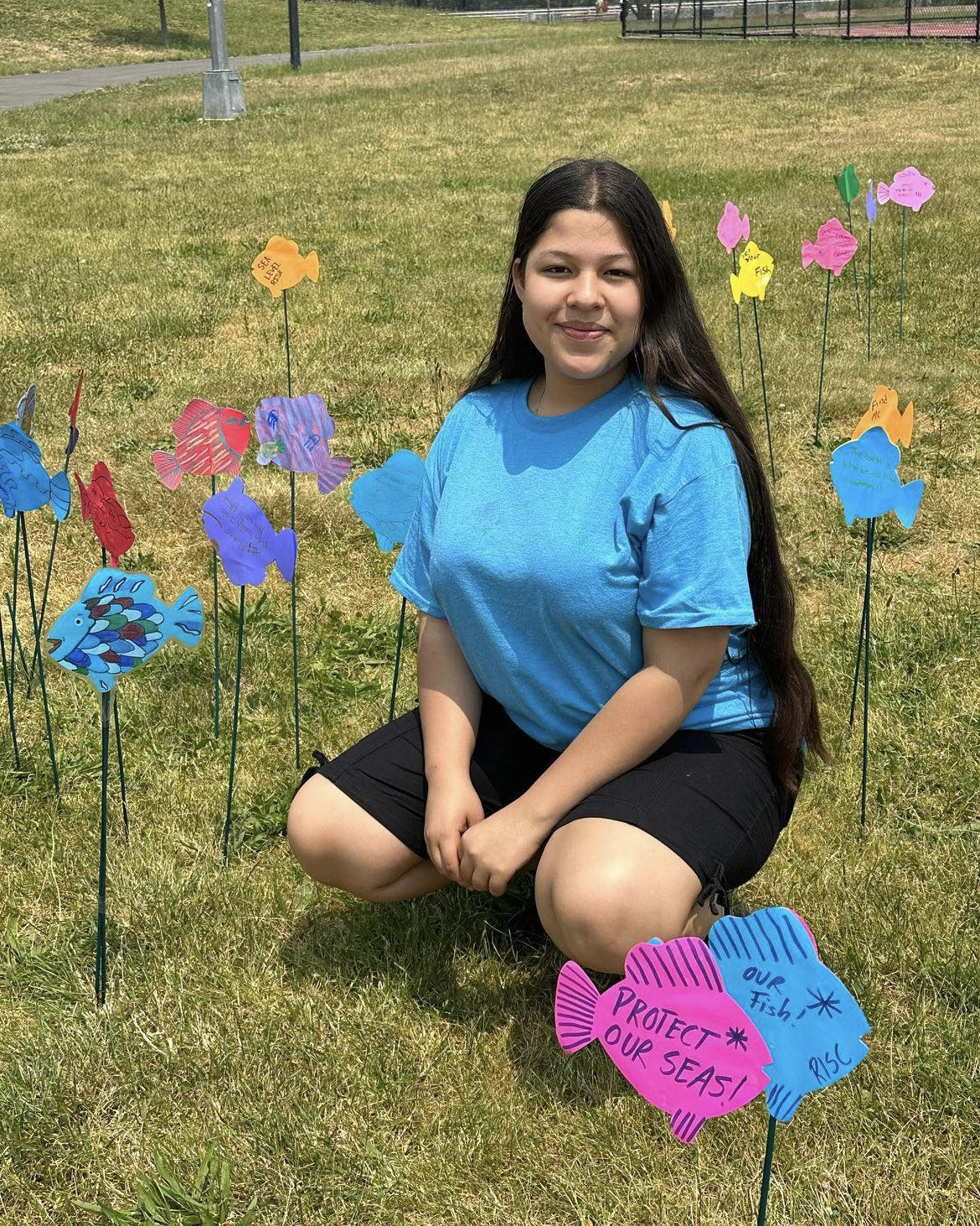We have much more to do and your continued support is needed now more than ever.
Climate Education Program in New York City Provides Hope
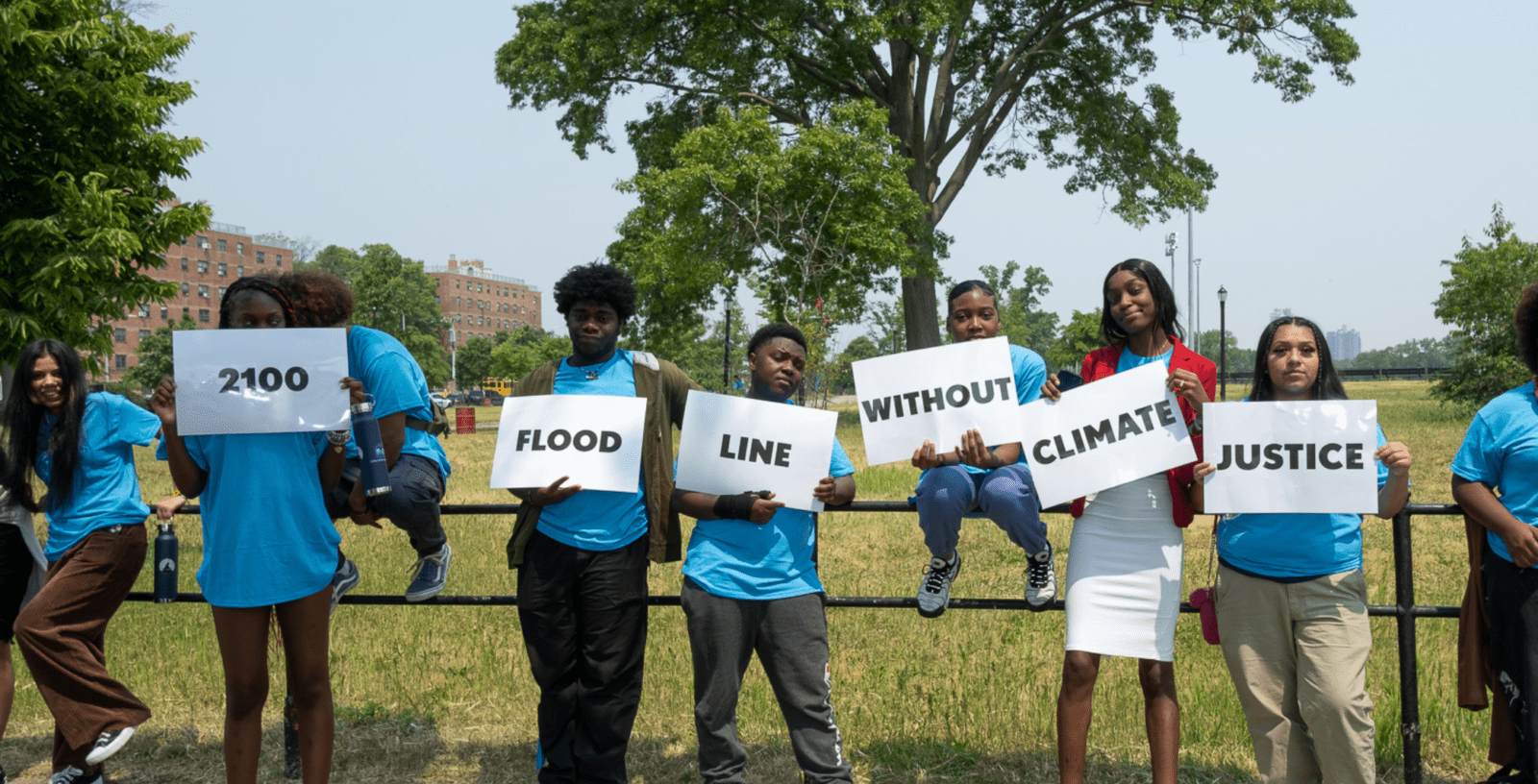
RiSC Community Open House: “Coney Island: Past, Present and Future”
On June 6, 2023, student teams from eight New York City public schools came together in Coney Island’s Kaiser Park for the National Wildlife Federation’s second annual Resilient Schools Consortium (RiSC) Community Open House: “Coney Island: Past, Present, and Future.”
Students came to share their learnings over the course of the school year and participate in activities that were being filmed for a documentary sequel about the program. Community partner, Coney Island Beautification Project, co-hosted the event and RiSC educational partners, New York Sea Grant and American Littoral Society, helped to lead activities.
Speakers Kick Off Coney Island Open House
Indigenous leader and artist Tecumseh Ceaser, of the Matinecock Turkey clan and Montaukett, and Unkechaug descent, opened the event after a land acknowledgment provided by RiSC program manager, Heather Sioux. Ceaser serves as the North American Advisor for the Global Indigenous Youth Caucus at the United Nations, where he advocates for Indigenous Americans’ rights.
He spoke about Coney Island’s original Indigenous inhabitants and their stewardship of—and reverence for—the land and all its animals. He urged students to use their voices to make a difference for their environment and the climate.
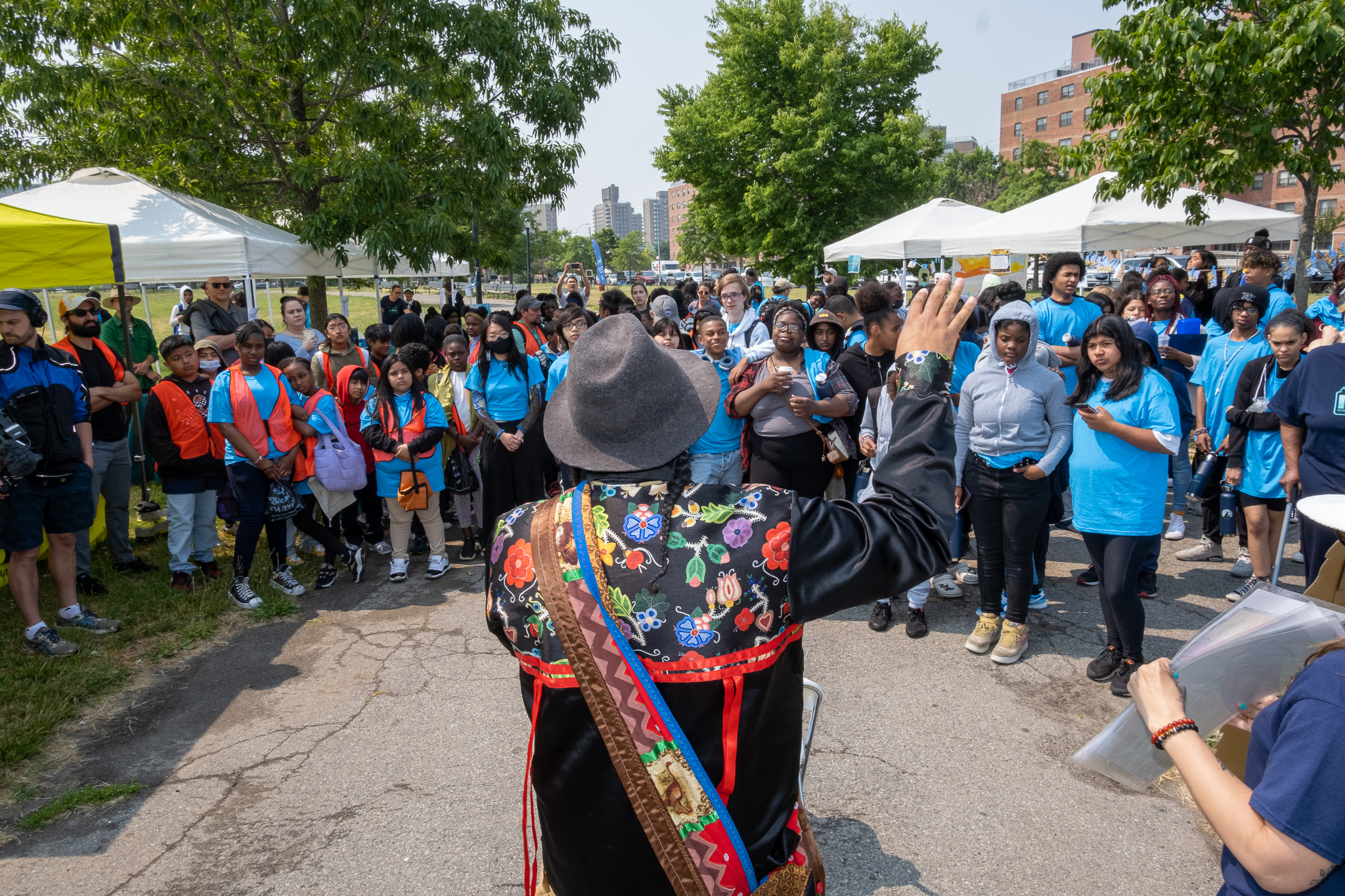
Jill Cornell from the NYC Office of Emergency Management offered remarks. Maggie Allen, from the National Oceanic and Atmospheric Administration (NOAA), a key RiSC program funder, expressed the agency’s longstanding support for the program, and climate resilience education more generally.
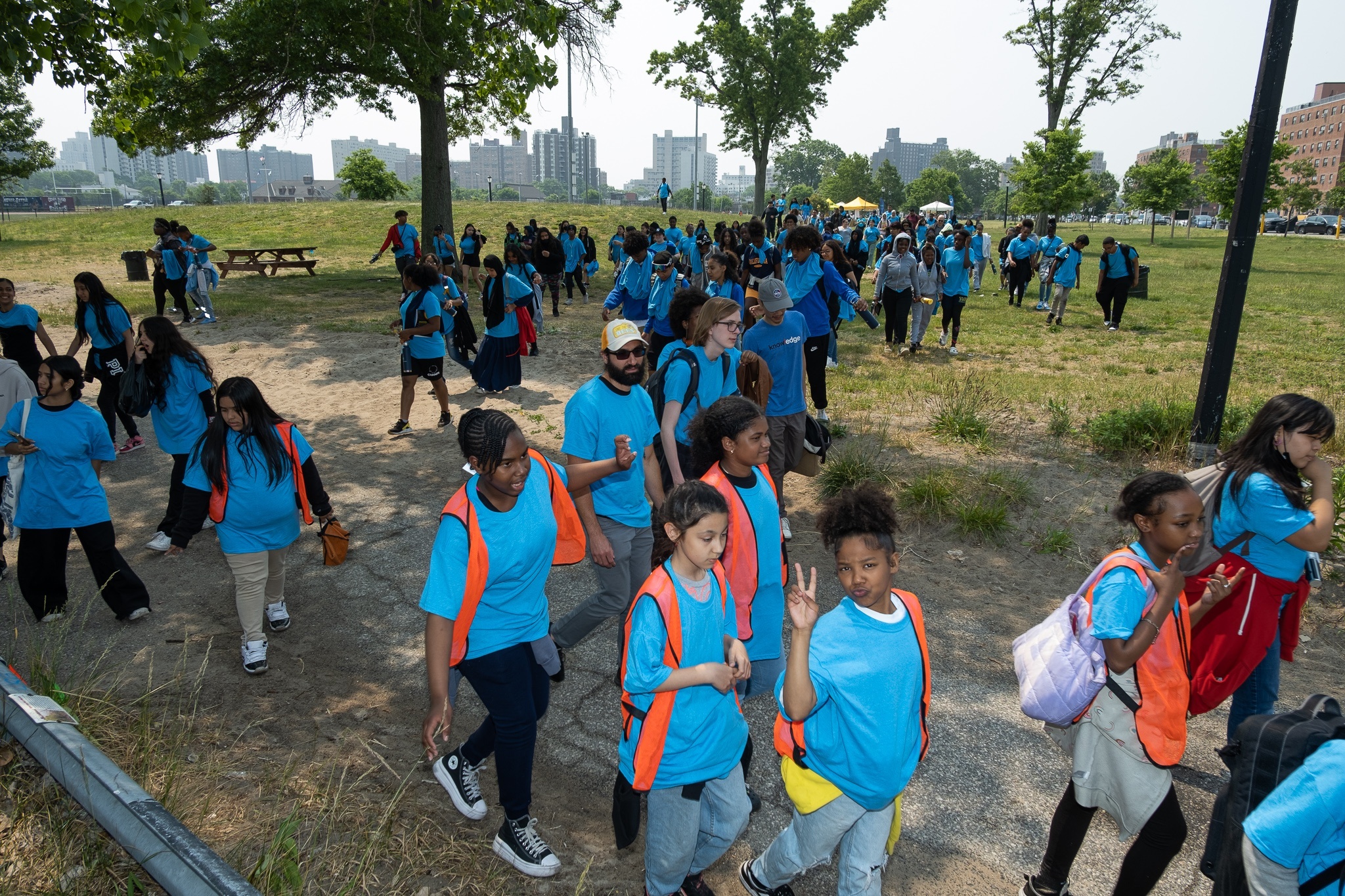
Understanding Sea Level Rise
After opening remarks, the day’s activities began. Students headed down to Coney Island Creek for hands-on experiences. Standing shoulder to shoulder, over 100 middle and high school students, including several elementary students from PS 90, participated in a dramatic “blue line action.”
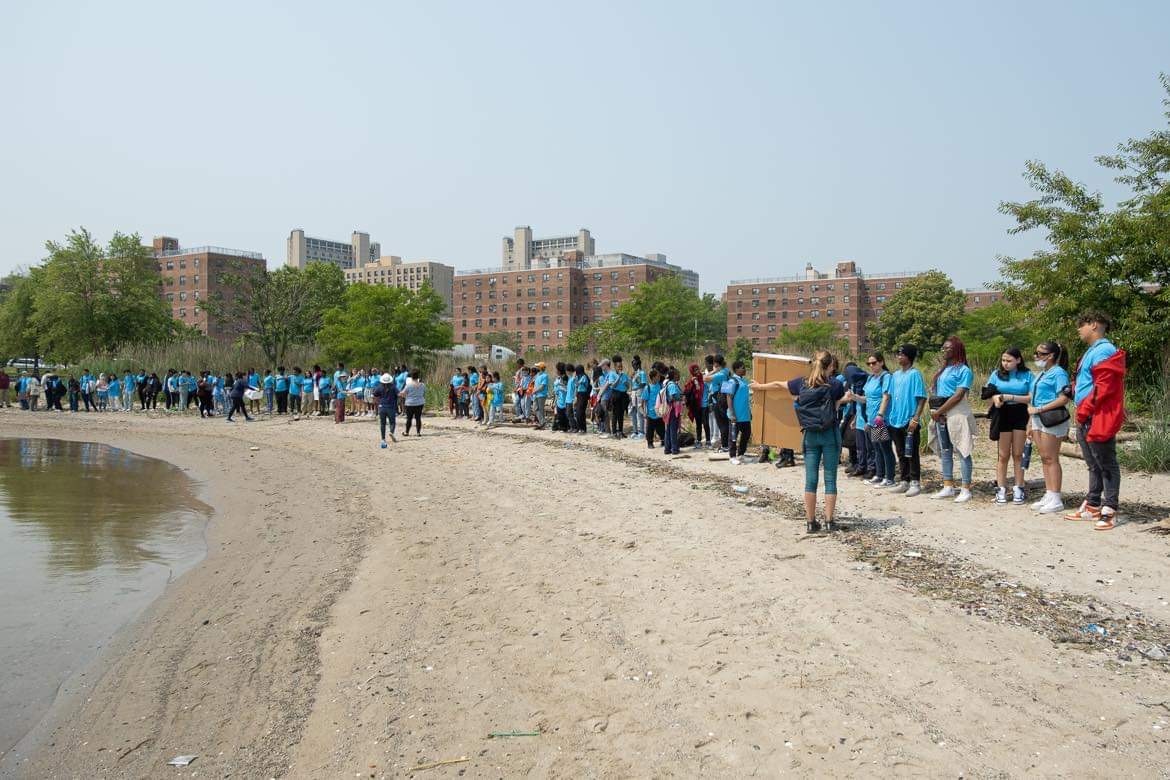
The goal was to visualize sea level rise in 2100 under two very different carbon emissions scenarios: “aggressive reductions,” which had them stand at the shoreline, and “no reductions/business as usual,” which saw them lining up on Neptune Avenue, a major thoroughfare. Students held signs that read “2100 Flood Line Without Climate Justice.”
Climate justice is a consistent theme in the RiSC curriculum. It explores issues like redlining and structural environmental racism which have placed low-income communities and communities of color like Coney Island in the path of the worst climate impacts.
After the blue line action and some pizza, students planted paper flags in the shape of fish in an area of Kaiser Park that was underwater during the glacial age. They were prompted to write messages on the fish flags about what they learned during the RiSC program. This activity was inspired by Climate Creatives’ Rising Waters project.
One student wrote, “I learned about sea level rise.” Another wrote, “We understand the social and economic implications of sea level rise.”
Several RiSC schools created and shared podcasts of interviews with local residents. Readers can listen to Rachel Carson High School’s interview with local Coney Island resident and community activist Jeanny Hernandez here.
Climate Postcards From the Future
A RiSC program activity students love is “Postcards From the Future” where they’re asked to write to their loved ones in 2080, describing their visions of a future Coney Island. These postcards were pinned on a hemp string, like clothes on a clothesline, where attendees could read them.
A powerfully written postcard read: “It’s 2080:…we raised the foundations of buildings…[T]hrough our efforts, people realized that excessive emissions of greenhouse gases would bring about climate change. Therefore, people reduced emissions and developed clean energy. This reduced natural disasters. Fewer and fewer people were worried about their homes being submerged.”
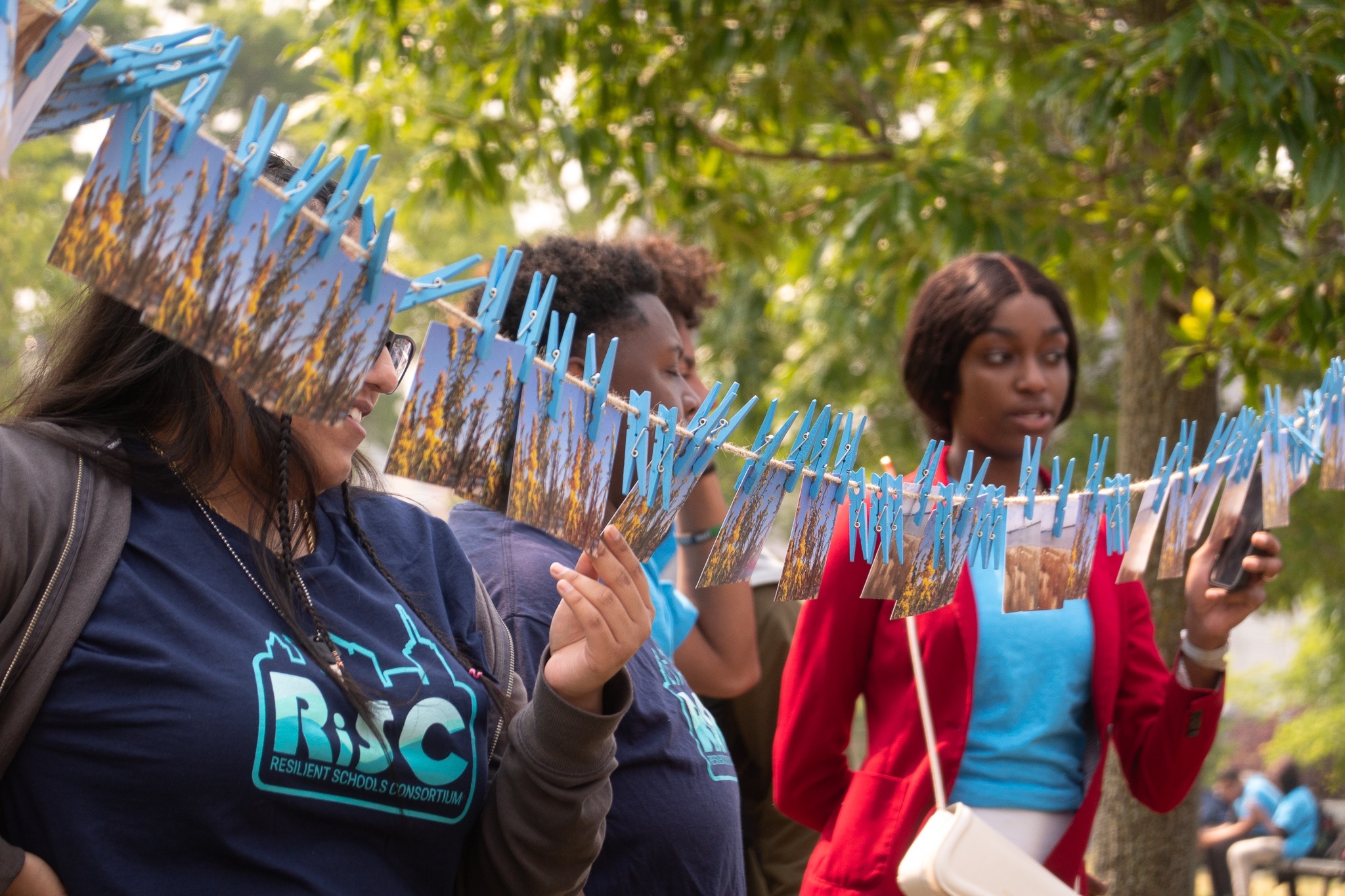
More About Resilient Schools Consortium
The RiSC program has been implemented in climate-vulnerable communities in New York City (NYC), Texas, and New Jersey and adopted in the U.S. Virgin Islands. The program will soon be translated into Spanish and piloted in frontline communities in Puerto Rico.
To learn more about RiSC, visit www.riscnyc.org.

